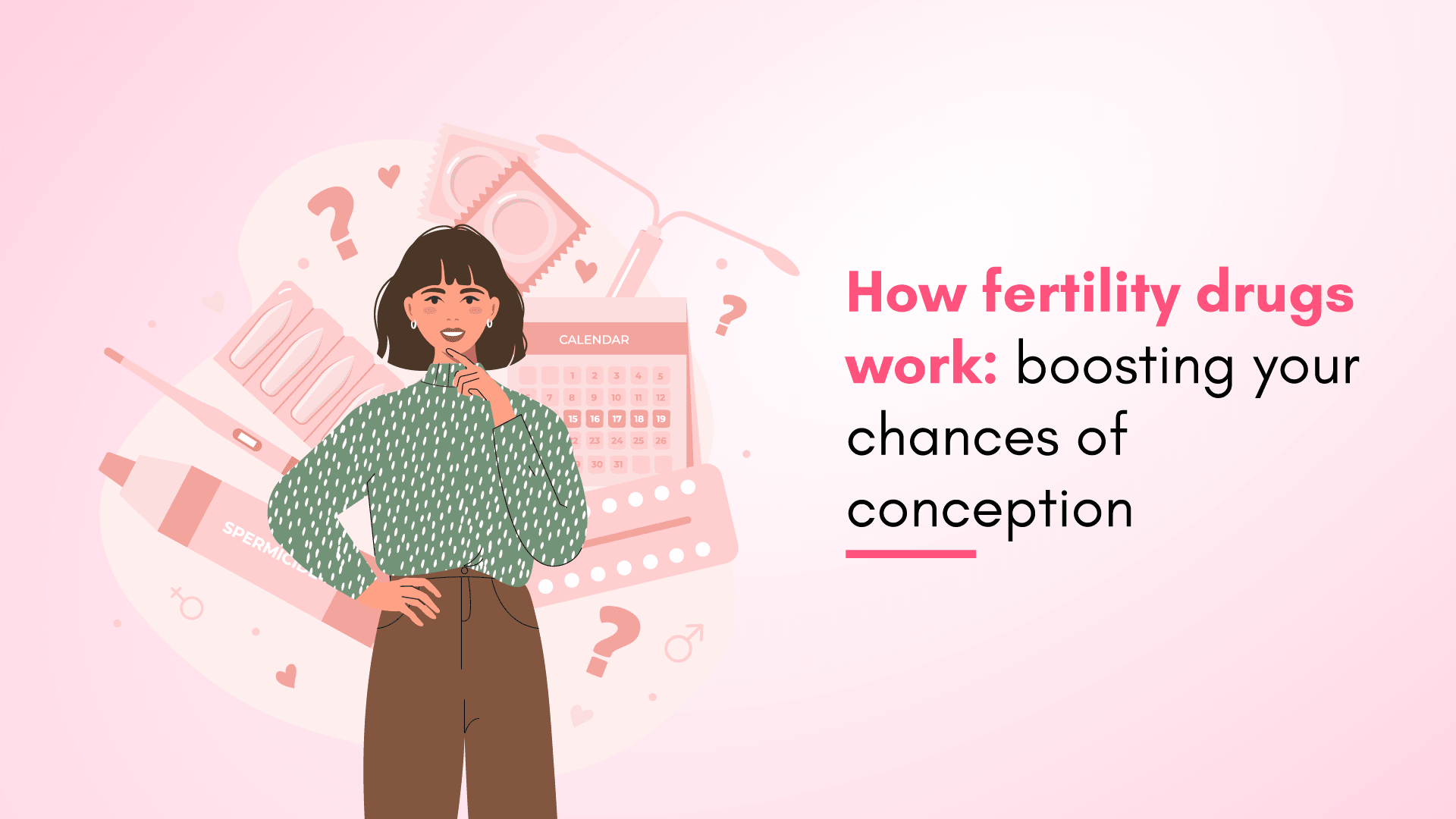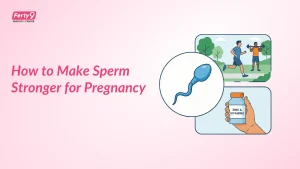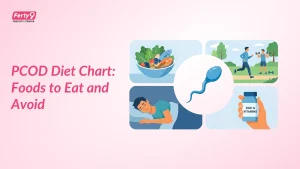Are you facing challenges in starting or expanding your family? Have you wondered how modern medicine can assist in overcoming fertility hurdles? Understanding how fertility drugs work could be the key to enhancing your chances of conception. In this blog, we’ll explore the mechanisms behind these drugs, their types, benefits, potential risks, and why consulting a specialist is crucial. Let’s unravel the science behind fertility drugs for women and how they could potentially change your fertility journey.
What Are Fertility Drugs?
Fertility drugs are medications that can help a couple conceive a child. They work by addressing different causes of infertility in both men and women. The success rate of fertility drugs varies depending on the underlying cause of infertility and the specific medication used. However, overall, female fertility medicines can help up to 80% of women ovulate, and about half of these women will become pregnant within three cycles.
Who Needs Fertility Drugs?
Fertility pills can be a helpful option for people who are struggling to conceive. Here are some of the people who might be prescribed fertility drugs by a doctor:
- Women with ovulation disorders: Fertility tablets stimulate egg release or regulate menstrual cycles.
- Women with polycystic ovary syndrome (PCOS): These drugs help regulate ovarian cycles for women with irregular periods and ovulation issues due to PCOS.
- Men with low sperm count or motility: Male fertility pills can improve sperm production or motility in some cases.
- Couples with unexplained infertility: If trying to conceive for over a year (or 6 months for women over 35) without a known cause, fertility drugs may be recommended to boost the chances of pregnancy.
Suggested Read: Fertility Challenges In PCOS
It is important to note that fertility drugs are not a guaranteed way to get pregnant. They can also have side effects, such as hot flashes, mood swings, and multiple births. If you are considering fertility drugs, it is important to talk to your doctor about the benefits and risks.
How do Fertility Drugs Work?
Fertility medications work in various ways to enhance the chances of getting pregnant. Here’s a detailed look at how they function:
Regulating Ovulation
These ovulation medicines correct hormonal imbalances to stimulate ovulation, promoting the release of mature eggs. They can also encourage the ovaries to produce multiple eggs, increasing fertilization chances.
Enhancing Ovarian Response
These drugs support follicle development, ensuring more eggs mature for successful ovulation. They also help time ovulation, aiding in predicting fertile days for intercourse or fertility treatments.
Improving Egg Quality
Fertility drugs create an optimal hormonal environment, enhancing egg quality and preparing the uterus for implantation, improving pregnancy success rates.
Suggested Read: Tips for Improving Egg Quality
Addressing Underlying Issues
They treat ovulatory disorders like PCOS by regulating cycles and promoting regular ovulation. They also help with irregular periods and hormone deficiencies, improving the likelihood of getting pregnant.
By targeting these areas, infertility drugs for women enhance your body’s natural reproductive processes, making pregnancy more likely and offering hope for happiness among couples struggling with infertility.
Different Types of Fertility Drugs
Exploring the various types of fertility drugs can help you understand how each one supports your journey toward conception. Here’s a brief overview of some commonly used options.
Clomiphene Citrate (Clomid)
Clomiphene citrate is commonly prescribed and it is the best fertility pill to get pregnant. It stimulates ovulation by blocking estrogen receptors in the brain. This tricks your body into producing more follicle-stimulating hormone (FSH), which encourages the development and release of eggs.
Gonadotropins
Gonadotropins are a group of hormones that include FSH and luteinizing hormone (LH). These injectable medications directly stimulate the ovaries to produce multiple eggs in one cycle. They are often used when other treatments have not been successful.
Metformin
Metformin is typically used for women with polycystic ovary syndrome (PCOS). It helps in improving insulin sensitivity, which can help regulate menstrual cycles and promote ovulation. This drug is often used in combination with other fertility treatments.
Letrozole
Letrozole is an aromatase inhibitor that lowers estrogen levels, prompting the body to produce more FSH to produce eggs. Letrozole is often used as an alternative to clomiphene citrate for inducing ovulation.
Bromocriptine and Cabergoline
Bromocriptine and Cabergoline are medications that reduce high levels of prolactin, a hormone that can interfere with ovulation. By lowering prolactin levels, these drugs help restore normal ovulation and improve fertility.
Remember, for personalized guidance on the best fertility drug for you, consult with your healthcare provider to optimize your journey to parenthood.
Benefits of Using Fertility Drugs
Using fertility drugs can offer several other benefits for couples and individuals struggling with infertility, including:
- Improved timing: Fertility drugs help synchronize intercourse with ovulation, increasing the chances of conception by timing it with the peak fertility window.
- Addressing hormonal imbalances: They correct hormonal issues that disrupt ovulation, helping to regulate the menstrual cycle and enhance reproductive health.
- Boosting egg production: These medications stimulate the ovaries to produce multiple eggs in one cycle, raising the likelihood of successful fertilization.
- Complementary treatments: When used with assisted reproductive technologies (ART) like IUI or IVF, fertility drugs improve the effectiveness of these treatments by optimizing egg production.
Side Effects and Risks
Fertility drugs can come with some side effects and risks, and they vary depending on the specific medication used.
- Higher chance of twins or more
- Ovarian Hyperstimulation Syndrome (OHSS): Ovary swelling and fluid buildup
- Hot flashes and mood swings
- Headaches and nausea
- Bloating or discomfort in the abdomen
- Higher risk of ectopic pregnancy: Pregnancy occurring outside the uterus
- Possible rare allergic reactions
Suggested Read: What is Ovarian Stimulation?
These points outline the primary considerations regarding the side effects and risks associated with the medicine used to get pregnant fast.
Consulting a Fertility Specialist
Consulting a fertility specialist is the next step if you’re facing challenges with conception. They specialize in diagnosing and treating infertility issues, offering personalized treatment plans. A specialist can conduct detailed assessments, recommend appropriate fertility tests, and discuss various treatment options, including fertility drugs for men or assisted reproductive technologies like IVF (In Vitro Fertilization). Their expertise ensures you receive tailored guidance and support throughout your journey to parenthood.
Conclusion
In conclusion, navigating fertility challenges often begins with understanding options like fertility drugs and seeking expert guidance. Whether exploring medicines to get pregnant or seeking answers, taking this step can bring you closer to your goal of starting a family. For comprehensive fertility care and support, consider reaching out to Ferty9, where dedicated professionals are ready to assist you on your journey to parenthood.




























